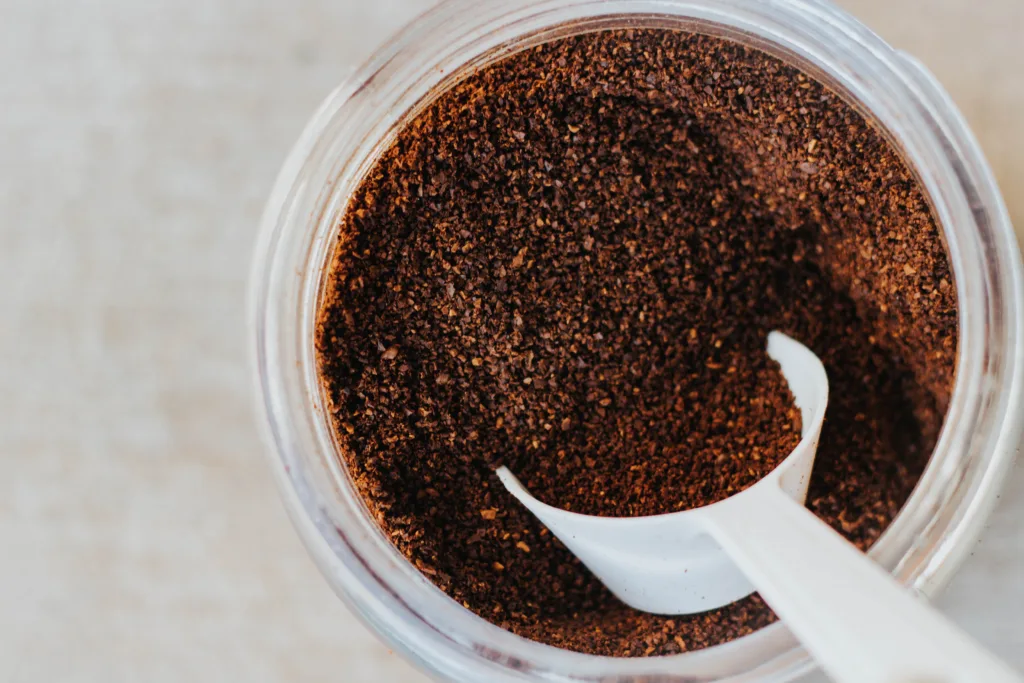Grinding is a process that involves reducing something to small particles or powder by crushing or pressing it. It is a common activity in various industries, including food processing, construction, and metalworking. As a result, the verb “grind” is an essential part of the English language.
When it coms to the past tense of the verb “grind,” the correct form is “ground.” For example, “I ground the coffee beans this morning.” In this sentence, “ground” is the past tense of “grind,” and it is used correctly.
However, in recent years, the word “grinded” has become increasingly common, leading some people to believe that it is an acceptable alternative to “ground.” While it is true that “grinded” is technically a past tense form of “grind,” it is considered nonstandard and should be avoided in formal writing.
Using “grinded” instead of “ground” can make your writing sound unprofessional and distract from your message. Therefore, it is important to use the correct form of the verb to ensure that your writing is clear and concise.
Here are some examples of correct and incorrect usage of “grinded” and “ground”:
– Correct: “I ground the meat for the burgers.”
– Incorrect: “I grinded the meat for the burgers.”
– Correct: “She ground the flour for the cake.”
– Incorrect: “She grinded the flour for the cake.”
It is crucial to use the correct past tense form of “grind” in your writing. While “grinded” may be considered acceptable in some contexts, it is not appropriate for formal writing. Instead, stick to the standard form of “ground” to ensure that your writing is clear, concise, and professional.
The Grammatical Accuracy of ‘Grinded’
The use of the word “grinded” has become more common over the past sevral decades, but it may still be considered incorrect in some contexts. The verb “grind” is usually inflected as “ground” in the past tense and as a past participle. Therefore, it is generally recommended to use “ground” instead of “grinded” in formal writing or when following traditional grammar rules. However, it is worth noting that language is constantly evolving, and some people may use “grinded” in informal or colloquial speech without any issue. Ultimately, the acceptability of “grinded” depends on the context and audience of the communication.

Is Grinding a Word?
Grinded is a word. However, it is considered nonstandard English, and it is not commonly used in formal writing or speech. The standard past tense and past participle of the verb “grind” is “ground.” For example, “I ground the coffee beans this morning” and “I have ground coffee beans evry morning this week.”
In some contexts, such as in video games, the word “grinded” is used as the past tense and past participle of “grind.” For instance, “I grinded for experience points before taking on the boss.”
It is important to note that while “grinded” is technically a word, it is not widely accepted in formal settings. It is recommended to use the standard form “ground” instead.
Is ‘Grinded’ the Past Tense of ‘Grind’?
Grind is a regular verb in the English language, which means that its past tense and past participle forms are usually formed by adding -ed to the base form. Therefore, the past tense of grind is usually grinded. However, some sources note that ground is also an acceptable past tense form of grind, especially in American English.
It’s worth noting that while both forms are technically correct, the usage of grinded is less common and may be considered nonstandard or informal in some contexts. Therefore, to ensure clarity and precision in your writing, it may be advisable to use the more widely recognized form, which is ground.
Both “grinded” and “ground” are acceptable past tense forms of the verb “grind,” with “ground” beng the more commonly used and widely accepted form.
The Use of the Word Grinded
There is a word like grinded, but it is not considered standard English. The correct past tense and past participle of the verb “grind” is “ground.” However, “grinded” is used in some dialects and informal contexts, but it is generally considered nonstandard and should be avoided in formal writing. It is important to note that using nonstandard words can affect the credibility and clarity of your communication. Therefore, it is recommended to use standard English to ensure that your message is conveyed accurately and effectively.
The Difference Between Coffee Ground and Coffee Grind
When it cmes to coffee, the terms “coffee ground” and “coffee grind” are often used interchangeably. However, there is a subtle difference in their meaning.
The term “coffee ground” refers to the physical substance that results from grinding coffee beans. When coffee beans are ground, they are broken down into small granules, which are commonly referred to as “grounds.” These grounds can be further classified based on their size, such as coarse, medium, or fine.
On the other hand, the term “coffee grind” refers to the act of grinding coffee beans. It is the process of breaking down the beans into smaller particles or granules that can be used to make coffee.
It is important to note that the size of the coffee grounds can have a significant impact on the flavor of the coffee. Coarse grounds are best for a French press, while medium grounds are ideal for drip coffee makers. Fine grounds are typically used for espresso machines.
While the terms “coffee ground” and “coffee grind” are often used interchangeably, they refer to different aspects of coffee. “Coffee ground” refers to the physical substance that results from grinding coffee beans, while “coffee grind” refers to the process of grinding coffee beans. The size of the coffee grounds can impact the flavor of the coffee and should be chosen based on the brewing method being used.

The Past Tense of Grind Down
The past tense of the phrasal verb “grind down” is “ground down.” This means that when referring to a previous action of wearing something down through the process of grinding, the correct verb form to use is “ground down.” For example, “Yesterday, I ground down the metal until it was smooth and shiny.” It is important to note that “grind” is the base form of the verb, while “ground” is the past tense of “grind” when it is used on its own. However, when “grind” is used with the particle “down,” the past tense is “ground down.”
The Grinding Has Come to a Halt
The word “grinded” is not a correct form of the past tense of “grind.” The correct form is “ground.” Therefore, the phrase “grinded to a halt” is not grammatically correct. The correct phrase to use is “ground to a halt.” This phrase means that something has come to a complete stop or is no longer functioning properly. It is often used to describe a situation where traffic or a process has stopped completely. It is important to use correct grammar in order to communicate effectively and avoid confusion.
The Difference Between Ground Pepper and Grinded Pepper
When it comes to the correct term to use for pepper that has been crushed into small pieces, the correct term is “ground pepper.” The word “ground” in this context is used as an adjective to describe the physical state of the pepper particles. It is important to note that “grinded” is not a proper word and should not be used when referring to pepper or any other food item that has been crushed into small pieces.
It is also worth noting that the term “ground” can be used to describe a variety of food items that have been crushed or pulverized into small pieces. For example, you may see products labeled as “ground coffee,” “ground beef,” or “ground almonds.” In each of these cases, “ground” is being used as an adjective to describe the physical state of the food item in question.
To summarize, the correct term to use when referring to pepper that has been crushed into small pieces is “ground pepper.” When discussing other foods that have been similarly processed, you can use the term “ground” as an adjective to describe teir physical state.
The Past Tense of Ground
The past tense of the verb “ground” is “ground”. This is a regular verb, meaning that its past tense is formed by adding “-ed” to the base form of the verb. However, there is a nonstandard past tense form of “ground” that is sometimes used in American English, which is “grinded”. It is important to note that “grinded” is considered incorrect in standard English and should be avoided in formal writing.

Grinding Coffee
Coffee is typically ground using a grinder, which uses either blades or burrs to grind the beans into smaller particles. Blade grinders use a sharp metal blade to chop up the coffee beans as the blade spins. The fineness of the grind is controlled by pulsing the power button until the desired consistency is achieved.
Burr grinders, on the other hand, use two revolving abrasive surfaces to crush the beans. The distance between the two surfaces can be adjusted to control the fineness of the grind. Burr grinders are generally considered to produce a more consistent grind than blade grinders.
There are also diferent types of grinds that can be achieved, depending on the brewing method being used. For example, a coarse grind is typically used for French press coffee, while a fine grind is used for espresso.
The process of grinding coffee involves breaking down the beans into smaller particles to extract the flavor and aroma when brewing. The method and equipment used can impact the quality and consistency of the resulting grind.
The Past Perfect Tense of ‘Grind’
The past perfect tense of the verb “grind” is “had ground.” This tense is formed by usig the auxiliary verb “had” in the past tense, followed by the past participle of “grind,” which is “ground.” The past perfect tense is used to describe an action that was completed before another action in the past. For example, “I had ground the coffee before my guests arrived.” In this sentence, the action of grinding the coffee was completed before the guests arrived, which is why the past perfect tense is used. It is important to note that the past perfect tense is used to describe completed actions in the past, and it is not used to describe ongoing or continuous actions.
Grinding in the Perfect Tense
The perfect tense of the verb ‘grind’ is ‘have ground’ or ‘have grinded’. This tense is formed by usng the auxiliary verb ‘have’ in present tense, followed by the past participle of the verb ‘grind’. The past participle of ‘grind’ can be either ‘ground’ or ‘grinded’, depending on the context and the preference of the speaker or writer.
It is important to note that the perfect tense is used to describe an action that was completed in the past and has relevance to the present. For example, “I have ground the coffee beans for our morning coffee” implies that the action of grinding the coffee beans was completed in the past, but it has relevance to the present as it is necessary for making the morning coffee.
The perfect tense of ‘grind’ is ‘have ground’ or ‘have grinded’, and it is used to describe an action that was completed in the past and has relevance to the present.
Conclusion
Both “ground” and “grinded” can be used to describe the past tense of the verb “grind.” However, “ground” is the more widely accepted and traditional form, whie “grinded” is a newer and nonstandard variant that has become more common in recent years.
While some may argue that “grinded” should be avoided in formal writing, it is worth noting that language is constantly evolving and changing. As such, it is important to consider context and audience when choosing which form to use. In informal or casual settings, “grinded” may be perfectly acceptable, while in academic or professional writing, it may be best to stick with the more traditional “ground.”
Ultimately, the choice between “ground” and “grinded” will depend on the writer’s personal preference and the context in which it is used. Regardless of which form is chosen, it is important to maintain consistency throughout the text and avoid unnecessary repetition.
